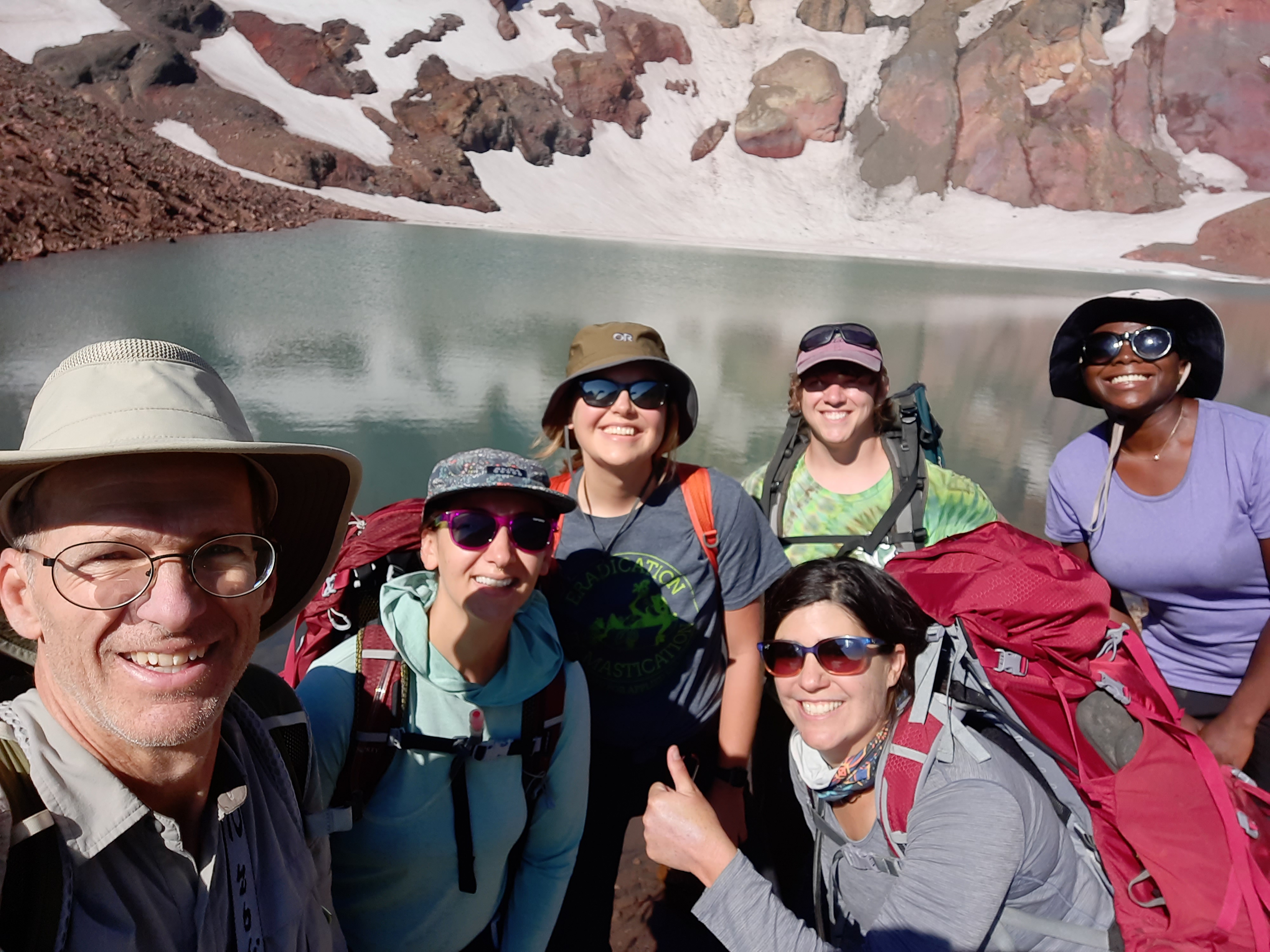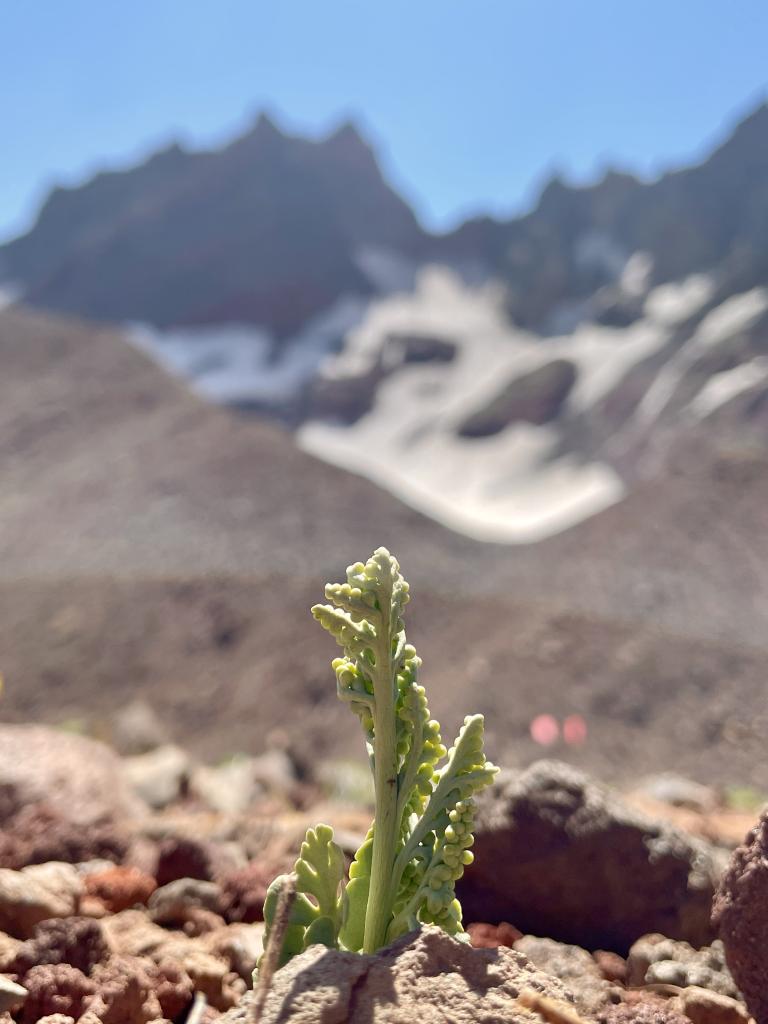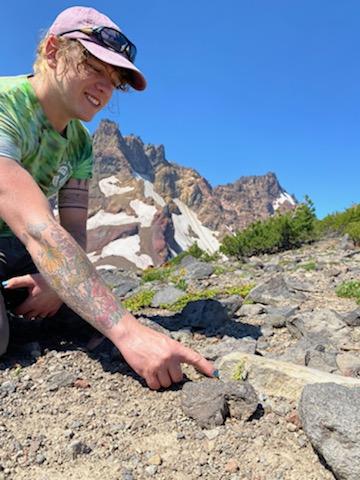New Alpine Populations of Pumice Moonwort Discovered
By Cierra Dawson, IAE Intern
November 2022

Imagine summiting a mountain at over 8,000 feet in elevation. Looking out from the ridge, you see Mt. Bachelor standing bold and bright against the early afternoon sun. South Sister Mountain looms behind you, and just before you lies the brilliant blue hues of No Name Lake, Oregon. This is where the Conservation Research crew found themselves for an exciting field day this past August.
Pumice moonwort (Botrychium pumicola–or “BOPU”) is a rare fern that is endemic to the central Cascades Range of Oregon and northern California. It occurs on pumice volcanic soils and curiously has two distinct habitat types: alpine ridge tops above 7,000 feet in elevation, and montane forests between 4,300-5,100 feet.


The Conservation Research team partnered with the U.S. Forest Service to spend three days and two nights ground truthing a species distribution model for Pumice moonwort. The model was developed by IAE Ecologist Soledad Diaz, and it uses a handful of environmental factors to predict areas where the species is likely to occur in different degrees of probability. In other words, the Conservation Research team was on the ground searching for new, never before discovered populations of this rare alpine fern.
And the best part is, they were successful!

In total, the team counted 424 individual Pumice moonwort plants across 3 partially surveyed populations. There is plenty of additional information needed to be captured by future surveying efforts to establish a comprehensive population census and habitat assessment. But for now, The Institute For Applied Ecology and the U.S. Forest Service are thrilled to have made such a monumental discovery and look forward to partnering again for future surveying efforts.
IAE thanks the U.S. Forest Service for funding and collaborating on this project as we work towards the conservation of this rare species. We also thank the Seattle Foundation for their support of our field interns.
“Discoveries are often made by not following instructions; by going off the main road; by trying the untried..” – Frank Tyger.
